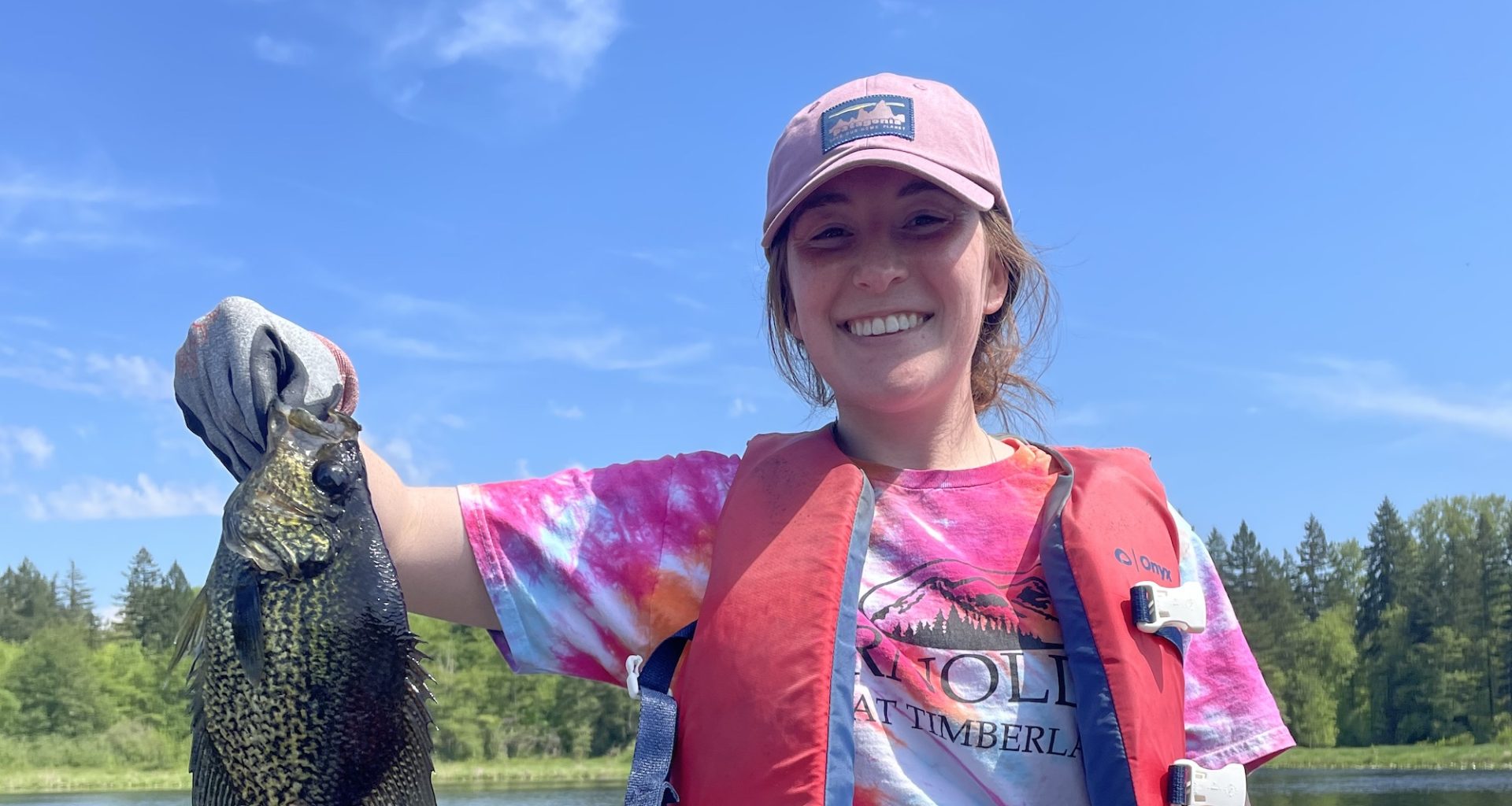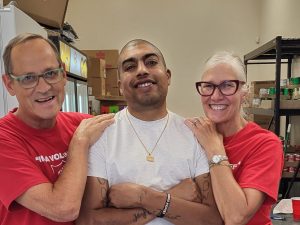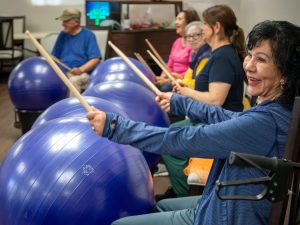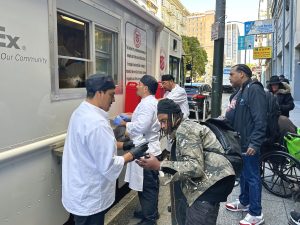Heading into its second season, Passage aims to inspire emerging and mid-career camp leaders.
Mackenzie McQuade grew up going to Salvation Army summer camps. She said it was where she could be the best version of herself, where she could try new things.
“I could do it while being cheered on by the people around me,” she said. “No judgment, just kindness and encouragement.”
Eventually, she had a realization.
“I want to do this for the rest of my life,” she said.
How to make that happen was a mystery, though. How would she secure a spot in a vocation where people often stay their whole career?
One day she got a call from Ed Covert, Redwood Glen Executive Camp Director, who suggested she join the new Salvation Army Passage camp leadership program. She agreed, and began the seven-month program when it launched in September 2023.
Developed by Covert in partnership with colleagues from Wheaton College, including Dr. Rob Ribbe, Director of HoneyRock, Passage aims to educate and inspire camp leaders, recognizing the importance of camp staff in creating a transformative experience for campers.
Open to all four Salvation Army territories in the U.S. and the Canada and Bermuda Territory, the program includes two cohorts: Sojourn, for emerging leaders like McQuade, and Quest, for mid-career individuals with five to 10 years of experience. The program combines in-person retreats, personal study and online meetings.
“What makes the Passage program really powerful is that we meet in-person to start—to build the relationships, the camaraderie, the connection, cast the vision,” Ribbe said. “It makes the online alive and personal—and real—because we’ve had those personal connections at the retreat.”
McQuade said she joined the program to network, to get a foot in the door of camp ministry. She said she made those connections and more.
“The spiritual development is huge,” McQuade said. “I need to make sure that I’m in a good place with the Lord—my routine and my habits and the way I live my life—before I can lead people full time this way.”
Covert confirmed that self-leadership is a goal of the Sojourn cohort.
“We want them to recognize that first of all, you’ve got to understand some things about leading yourself well and working in teams and caring for the people you’ll be responsible for,” he said.
Quest, the mid-career cohort, aims to reignite participants’ initial passion for camp ministry and to keep them current with youth culture.
“What will inspire you to engage the next generation of leaders and to develop them well? And we have to break free from the mindset that ‘we’ve always done it this way,’” Covert said. “Let’s be forward thinking.”
Quest focuses on organizational leadership, program design and the needs of staff as well as campers.
Ribbe said many people in this group were tired, on the verge of burnout. For them, a focus on creating space for solitude and communion with God was an important outcome. Another was a focus on the principles behind what makes camp work.
“What are the powerful dynamics inherent in temporary systems, where people are away from their home environment in a time-bound setting with a particular focus?” Ribbe said. “And the last big outcome was in organizational leadership…Some people are going home and flipping how their camp works as a result.”
A takeaway for both cohorts was expanding their vision for camp ministry.
“A big piece of the vision that gets expanded is that your ministry to staff is just as significant, if not more significant, than what you do with campers—getting a big vision for Christian camping and the power and potential of it,” Ribbe said.
That potential extends beyond the campground.
“Camp doesn’t occur in a vacuum,” said Covert, who recalled asking Western Territorial Commander Commissioner Douglas Riley what one of the biggest needs in the territory was. The answer? Leaders.
“We’ve probably got the premier leadership academy in the Army at camp,” Covert said. “We’re training leaders every single summer. Camp is intimately linked to the holistic delivery of ministry and service across the Army spectrum. When these young people go back into their corps and their communities, they’re able to engage in meaningful ways.”
Ribbe spoke about the impact of bringing kids from a range of church backgrounds together at camp, something The Salvation Army does.
“Most of the rest of the Christian camping in the U.S. is suburban, mostly white, middle and upper-class, and The Salvation Army’s at the opposite end of that spectrum,” he said. “If we can get Salvation Army camps functioning at the highest level of impact, they can become a model for the rest of Christian camping across the United States, in an area where Christian camping USA needs to grow. And that’s why I’m fired up to invest in Salvation Army leaders.”
Do Good:
- Subscribe to the Do Gooders Podcast and tune in for good ideas. Hear conversations with those doing good and those with good ideas so you can turn inspiration into action and make an impact right where you are.













